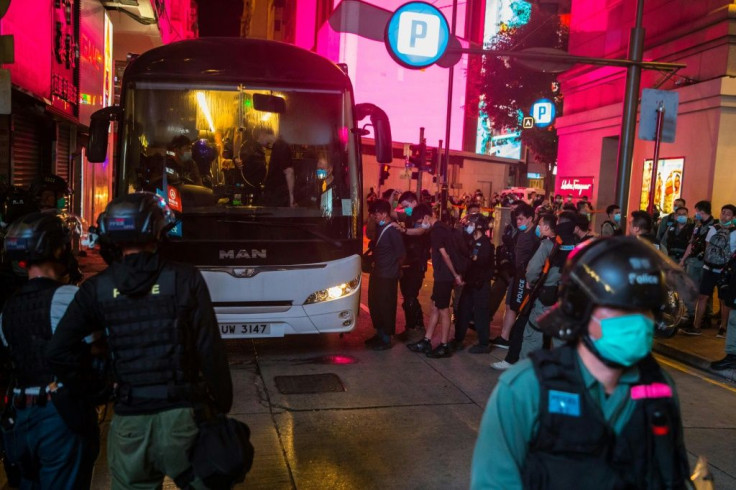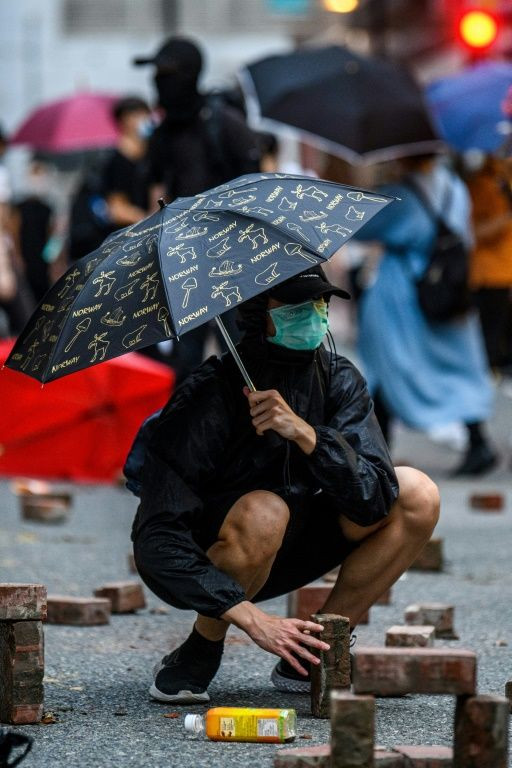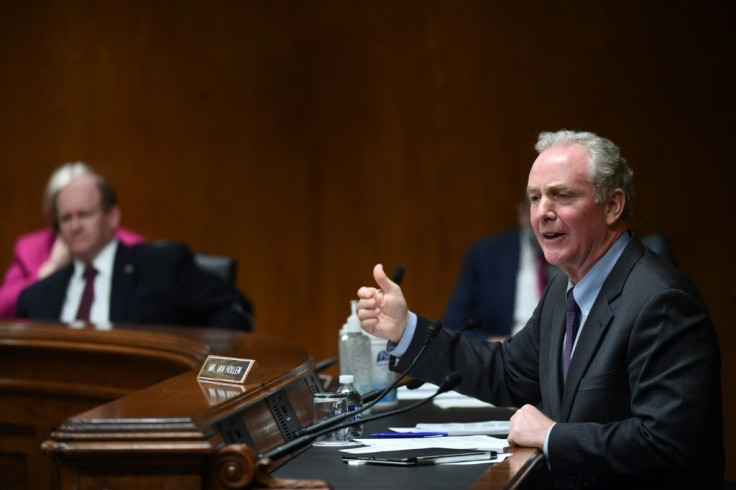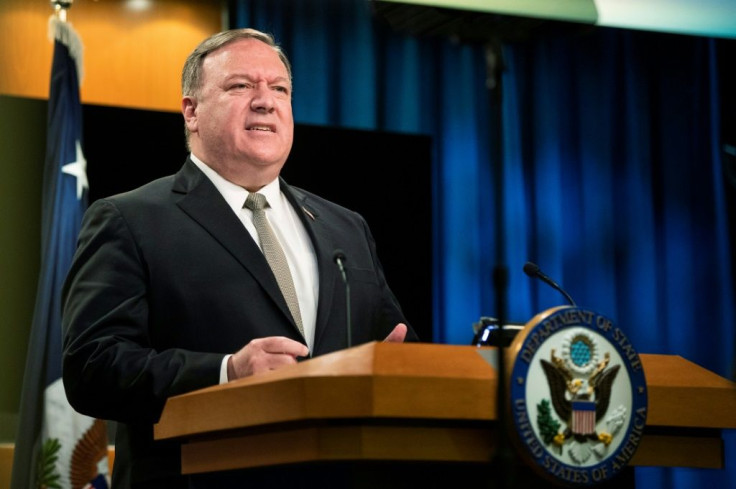US Congress Targets Banks, Ramping Up Fight For Hong Kong Rights

The US Congress on Thursday passed tough new sanctions that target banks over violations of Hong Kong's autonomy, dialing up the pressure on China over the harsh security law it imposed on the financial hub.
Beijing has threatened "strong countermeasures" if the act becomes law. President Donald Trump has not said if he will sign it, although a member of his Republican Party voiced confidence that he would and lawmakers likely could override a veto.
"Our timing could not be more critical," said Senator Chris Van Hollen, a Democrat who helped shepherd through the bipartisan measure.
"We will not stand still and silent and do nothing while they crack down on freedom in Hong Kong," he said on the Senate floor.
In a legislative fast-track move that does not require a full vote, the Senate unanimously approved the Hong Kong Autonomy Act, a day after the House of Representatives did likewise.
The Senate already passed the act last week, but it needed to vote once more due to technical changes made by the House.
The Hong Kong Autonomy Act goes significantly further than a sanctions law last year, which Trump reluctantly signed in the face of protests from Beijing.

The new legislation targets Chinese officials as well as the Hong Kong police, making US sanctions against them mandatory if they are identified in two consecutive government reports as working to restrict Hong Kong's freedoms.
Trump would still be able to waive sanctions -- but Congress could overrule him.
Senator Pat Toomey, a Republican who teamed up with Van Hollen on the legislation, acknowledged that some members of the administration opposed curbs on presidential power but said he had kept in close touch with the White House.
"I have no doubt that the president will sign it and I'm confident that it will be properly enforced," he told reporters.

In a crucial point of pressure, the act would punish banks -- including blocking loans from US institutions -- if they conduct "significant transactions" with violators of Hong Kong's autonomy.
The State Department would identify individuals or entities violating Hong Kong's freedoms within 90 days, after which banks would have one year to cut them off.

Toomey said he expected only small Chinese banks to be willing to bear the consequences.
"I think the reality is that Chinese banks are dependent on the United States and not the other way around," he said.
"If a Chinese bank decides that they value doing business with the oppressors more than they value access to engage in US dollar transactions or US Treasury transactions, then they can make that decision," he said.
China promised before taking back Hong Kong from Britain in 1997 to preserve the city's judicial and legislative autonomy until at least 2047.
But critics say that the security law imposed Tuesday destroys those promises.
On Wednesday, police rounded up hundreds of protesters, some charged under the new measure.
The legislation outlaws acts of subversion, secession, terrorism and colluding with foreign forces in Hong Kong, sending a chill through the pro-democracy movement, which led massive and occasionally destructive protests last year.
Van Hollen acknowledged that Beijing was unlikely to rescind the law but voiced hope that it might change its behavior.
"They have a lot of discretion now in how they move forward, and this legislation says we're watching this process closely and there will be a price to pay for snuffing out people's rights," he told reporters.
In a separate bipartisan effort on Hong Kong, lawmakers are seeking to make it easier for residents of the territory to seek refugee status in the United States.
The US measure, if passed, would put Hong Kongers who participated in pro-democracy protests in the same category as Cubans -- giving them a priority as refugees, with no limits on their numbers.
Britain has already said it will allow millions of Hong Kongers to relocate and eventually seek British nationality due to the security law.
Critics, including Trump's presumptive election rival Joe Biden, say that the president gave a green light to China by not speaking more forcefully last year as he was negotiating a trade deal with Chinese President Xi Jinping.
© Copyright AFP {{Year}}. All rights reserved.





















